Proteases
Proteases, also known as peptidases or proteolytic enzymes, consists of a large number of enzymes catalyzing the hydrolysis of peptide bonds and subsequently resulting in the degradation of protein substrates into amino acids. Proteases are involved in a wide range of human diseases, including cancer, neurodegenerative disorders, inflammatory diseases and cardiovascular diseases. Thus numerous proteases inhibitors (small molecules and proteins) have been identified to block activity of proteases. Proteases inhibitors can be classified into different types based on the class of proteases they inhibit through two general mechanisms, irreversible “trapping” reactions and reversible tight-binding reactions. Proteases inhibitors have been used as diagnostic or therapeutic agents for the treatment of proteases-related diseases.
-
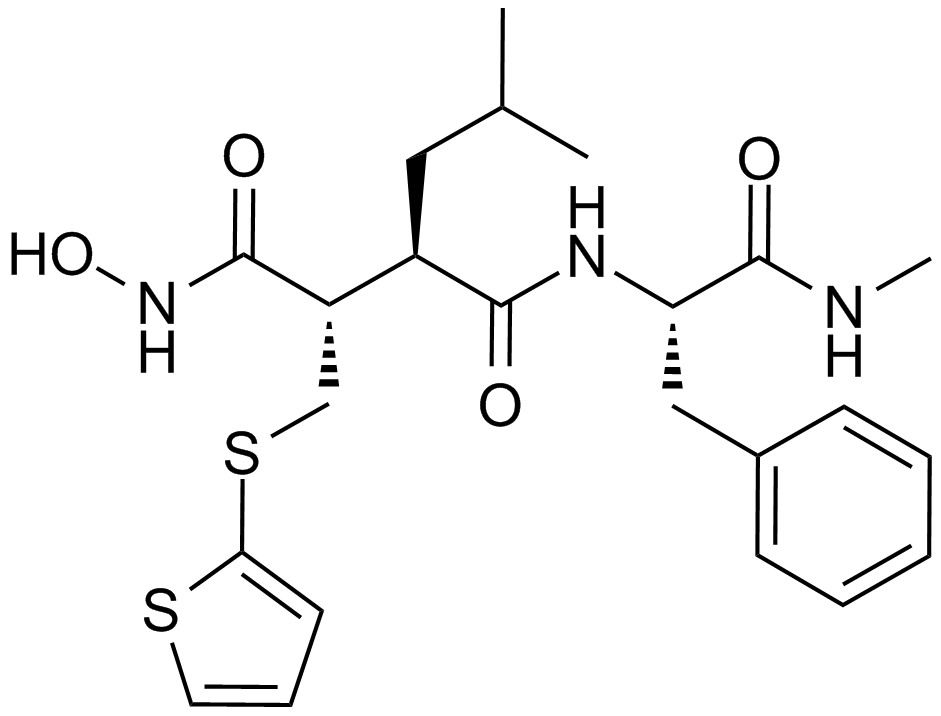 A2577 Batimastat (BB-94)7 CitationSummary: MMP inhibitor
A2577 Batimastat (BB-94)7 CitationSummary: MMP inhibitor -
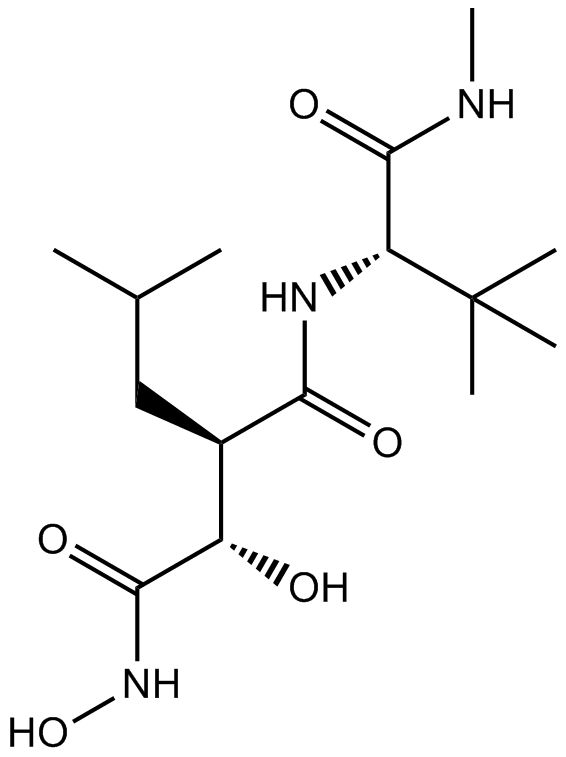 A4049 Marimastat1 CitationTarget: MMPSummary: MMPs inhibitor,board spectrum
A4049 Marimastat1 CitationTarget: MMPSummary: MMPs inhibitor,board spectrum -
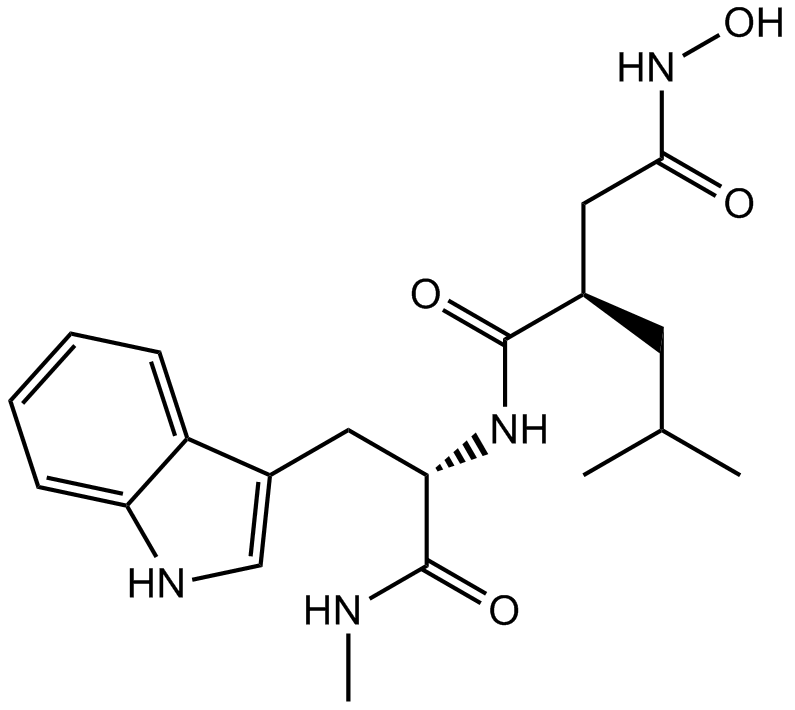 A4050 GM 60012 CitationTarget: MMPSummary: Broad spectrum MMP inhibitor
A4050 GM 60012 CitationTarget: MMPSummary: Broad spectrum MMP inhibitor -
 A4051 NSC 4050201 CitationTarget: MMPSummary: MT1-MMP inhibitor
A4051 NSC 4050201 CitationTarget: MMPSummary: MT1-MMP inhibitor -
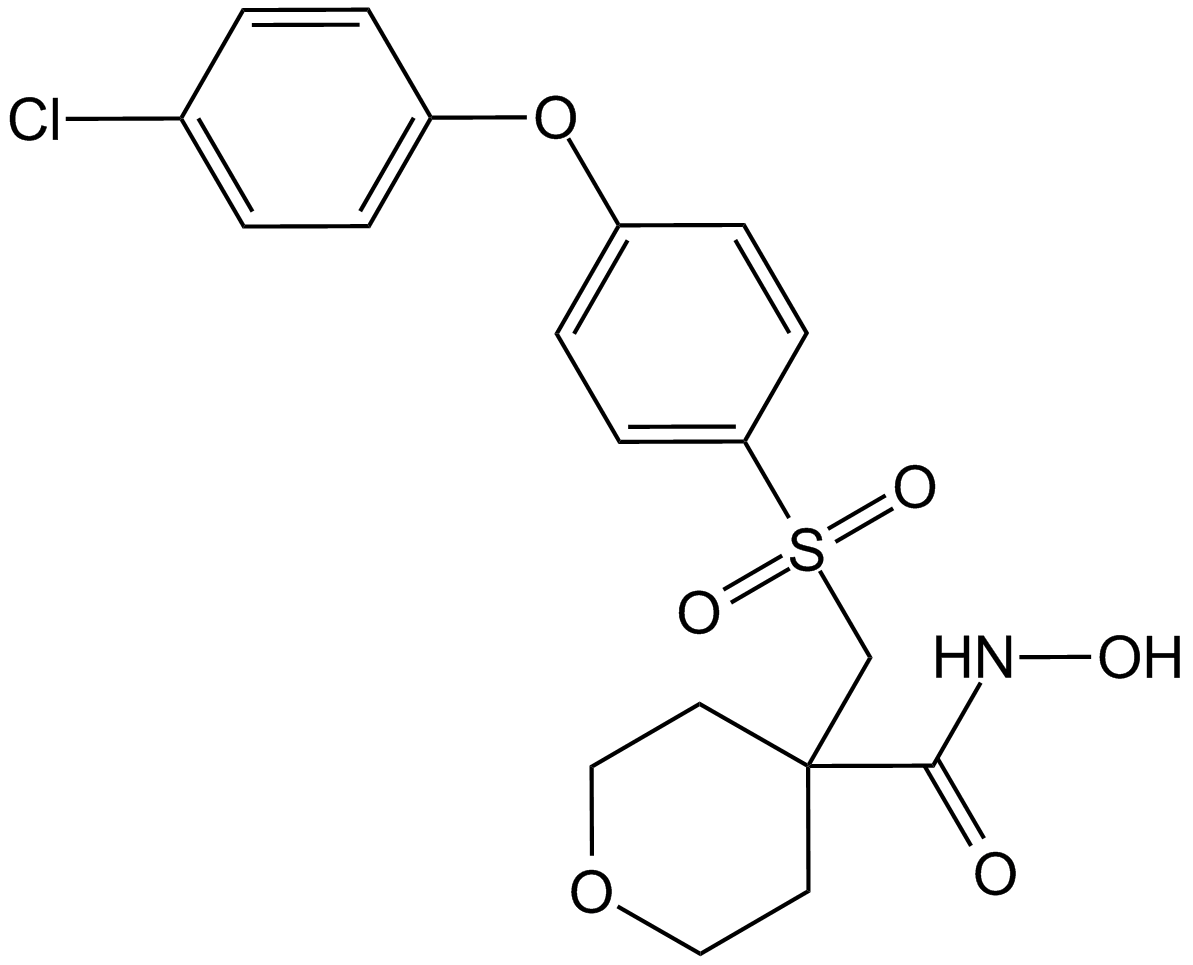 A3334 CTS-1027Summary: MMPs inhibitor
A3334 CTS-1027Summary: MMPs inhibitor -
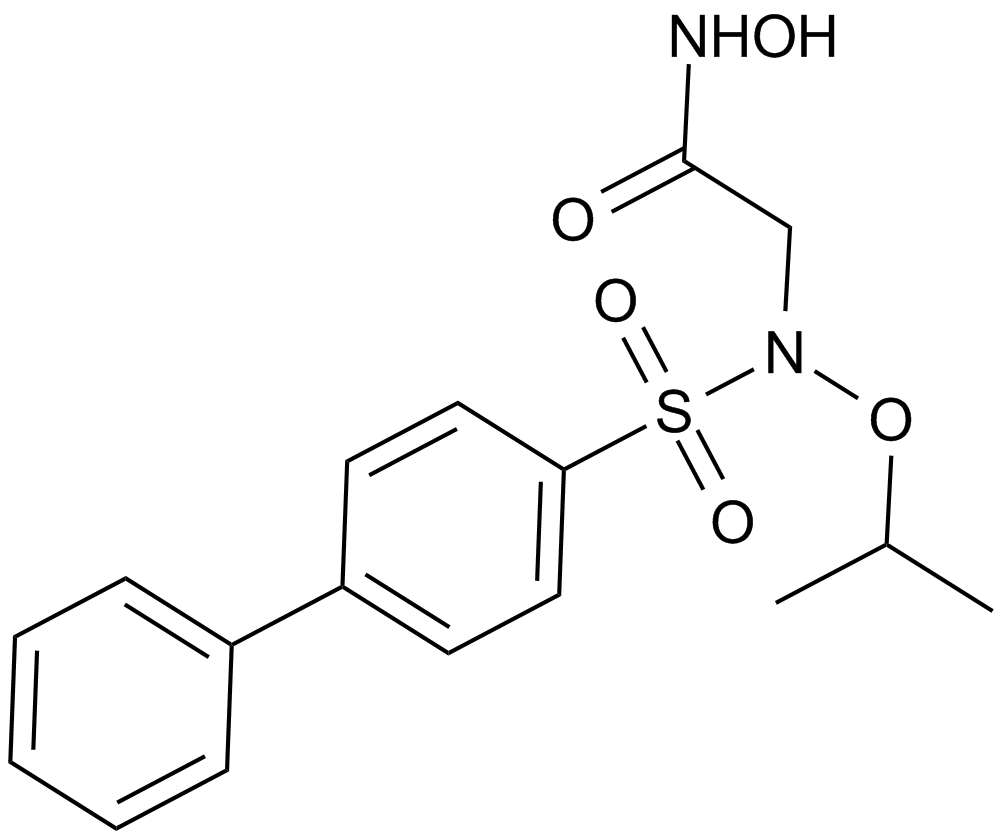 A4432 ARP 1001 CitationTarget: MMPSummary: Selective MMP-2 inhibitor
A4432 ARP 1001 CitationTarget: MMPSummary: Selective MMP-2 inhibitor -
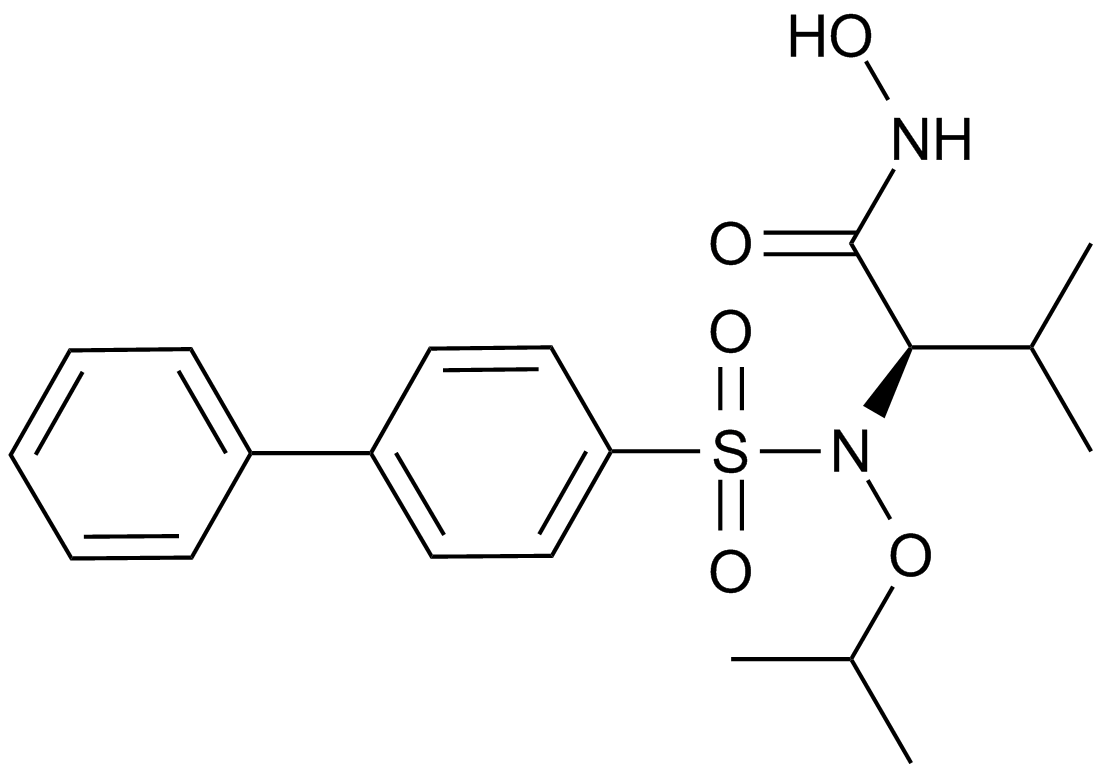 A4433 ARP 1011 CitationSummary: MMP inhibitor,potent and selective
A4433 ARP 1011 CitationSummary: MMP inhibitor,potent and selective -
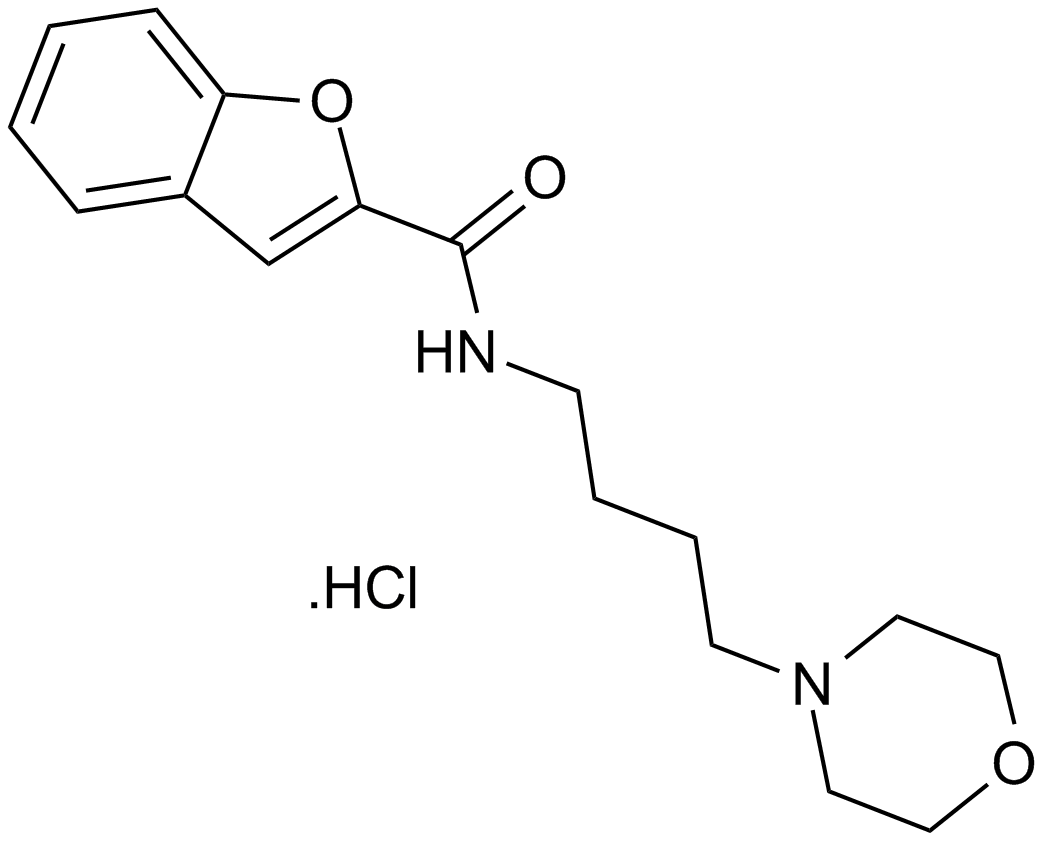 A4434 CL 82198 hydrochlorideSummary: Selective MMP-13 inhibitor
A4434 CL 82198 hydrochlorideSummary: Selective MMP-13 inhibitor -
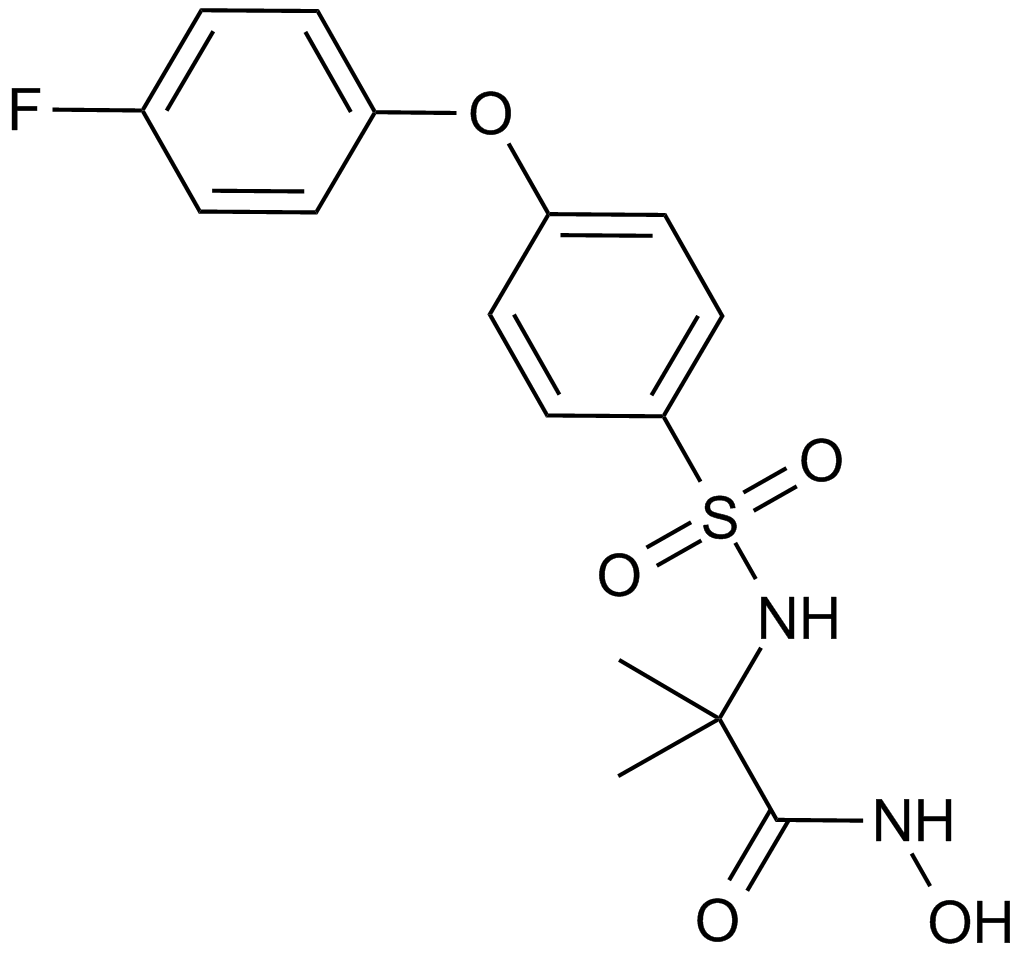 A4435 CP 471474Summary: Broad spectrum MMP inhibitor
A4435 CP 471474Summary: Broad spectrum MMP inhibitor -
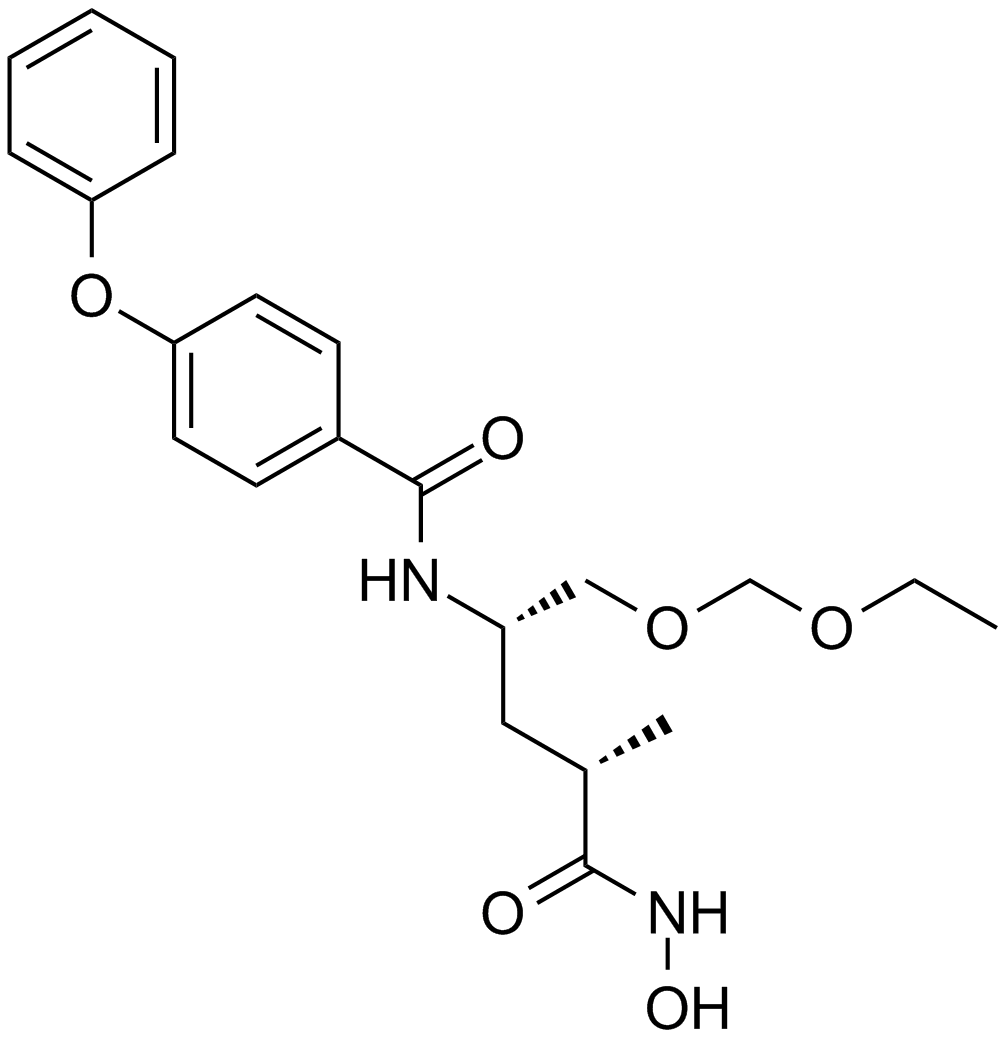 A4437 ONO 4817Summary: MMP inhibitor
A4437 ONO 4817Summary: MMP inhibitor

